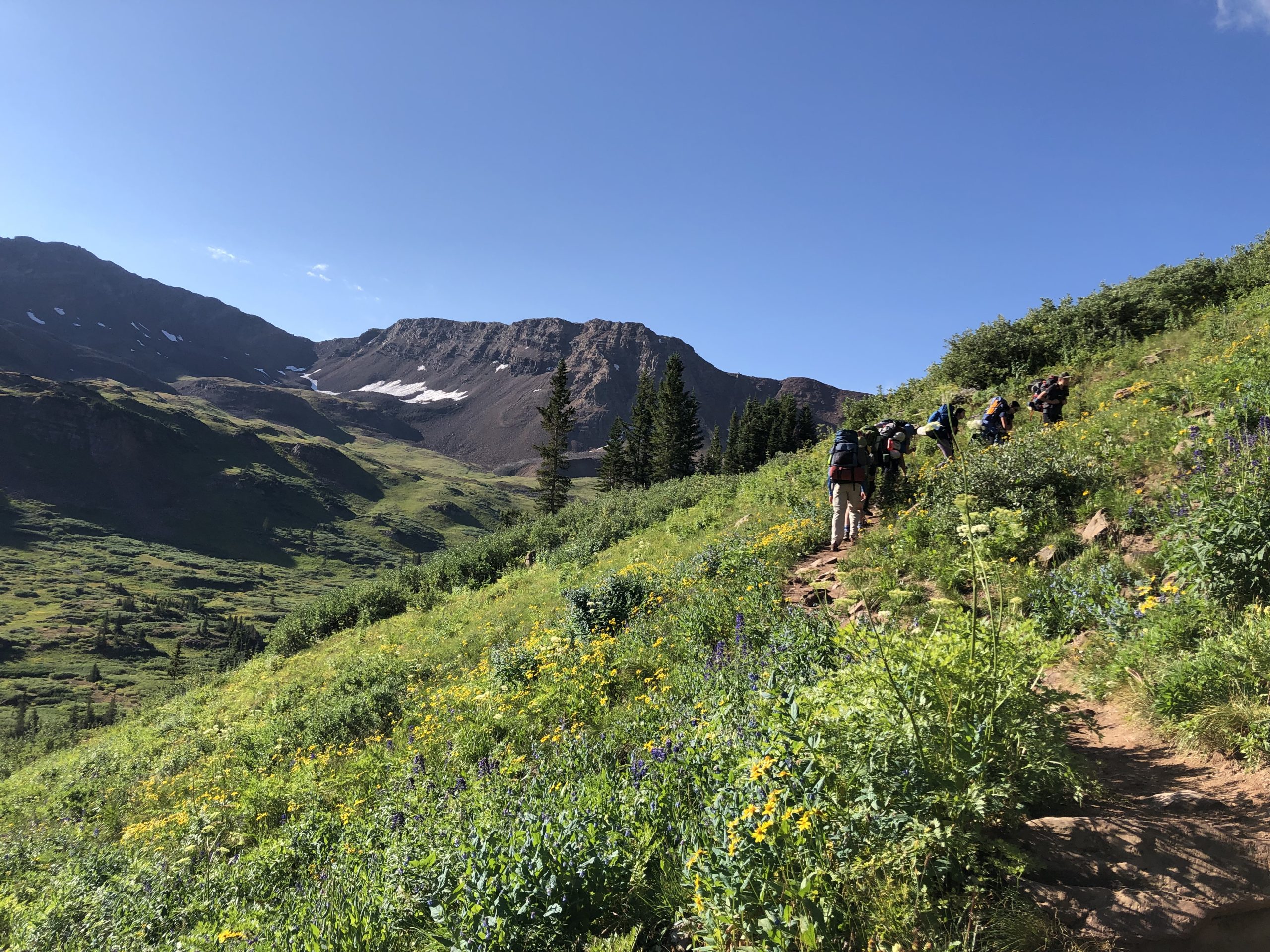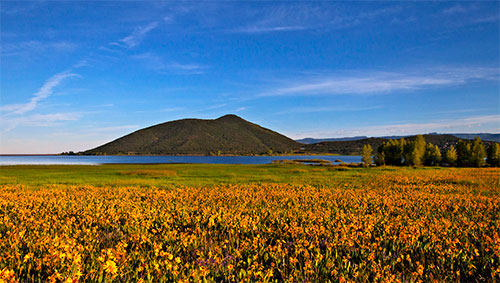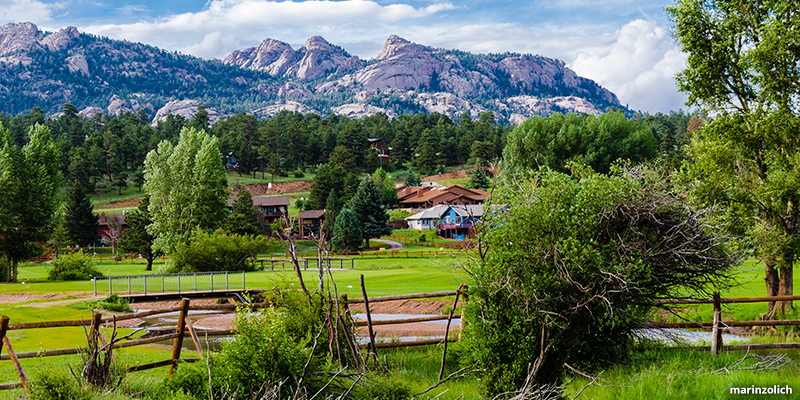All You Need to Know: Backpacking In Colorado
Colorado Backpacking
Backpacking or thru-hiking might be your new sport if you are looking for an even bigger taste of nature, a longer hiking experience, or more remote landscapes. Did you know there are over five thousand miles of hiking trails in Colorado? Day hikes are great because you get to see some excellent diverse scenery and then go home to sleep in your own bed at night. However, backpacking dives deeper into remote landscapes and the wonders of Colorado’s nature. There is nothing as refreshing as spending a few days or more in Colorado’s wilderness.
Overnight Backpacking Trails
Depending on how fast you hike, some trails might be done in a day for some people but could require an overnight trip for you. Hundreds of amazing trails and wilderness areas are suitable for overnight backpacking trips.
If you’re just getting started with backpacking, we suggest trying a shorter trail, such as:
- the Lost Creek Wilderness Loop (28 miles)
- the Maroon Bells Four Pass Loop in Aspen (27 miles)
- the Devil’s Thumb to King’s Lake Loop in Nederland (16 miles)
- Zirkel Circle near Steamboat Springs (11 miles).
Get Fit for Backpacking
You can dip your feet into the backpacking world by hiking somewhere dispersed camping (national forest or BLM land areas that do not provide any services) is allowed and hiking as far as you feel comfortable before setting up camp. It’s a good way to train yourself to carry the weight of your backpack and bring everything you need. Early-season overnight trips are a good way to get ready for longer trips, even for seasoned backpackers. These trips help organize your equipment and let you figure out what you’re forgetting, what needs to be fixed, or discover other problems. It’s also a chance to break in new hiking shoes or get your new backpack comfortable and set up the way you want it. Committing to a long, intense backpacking trip before you have tested your equipment is asking for problems.
Thru-hikes – Point to Point Backpacking
The most famous thru-hike in Colorado is the Colorado Trail, which stretches 567 miles between Denver and Durango. An average thru-hike of the Colorado Trail takes about 33 days, and passes through six wilderness areas and eight separate mountain ranges, with an overall elevation change of over 90,000 vertical feet throughout the entire hike. Colorado is also home to part of the Continental Divide Trail, which stretches from Canada to Mexico, with 740 of those miles right here in Colorado.
What to Bring?
When it comes to backpacking, traveling as lightly as possible is key because you’ll carry all your belongings the whole way. That means your backpack has to fit:
- a small tent or tarp
- a sleeping bag, and a sleeping mat
- extra clothing and layers
- warm gloves and hat
- rain gear, and sun visor
- a light source
- food, water, eating utensils
- a camp stove for cooking, fuel, lighter, and matches
- a first-aid kit
- a mini toiletries bag, sunscreen, dish soap, and camp towel.
- other miscellaneous accessories you might need, like electronics and chargers
- trekking poles
- a water filtration system so you don’t have to pack all your water for the entire trip. (Pro tip: a platypus water system is a compact gravity-fed filtration device.)
Where to Buy Backpacking Items
Sporting goods stores sell lightweight items made specifically for backpacking, but these can get pricey, so it’s a good idea to start collecting some items ahead of time so you don’t have to purchase everything all at once.

Resupplying
If you’re hiking the Colorado Trail or another long trail that will take weeks, you don’t have to carry everything with you. There are towns along the way. This means you can send packages to yourself or have friends mail care packages. A resupply stop offers much-needed rest and the chance to pick up food and other items you may need to buy at local stores for the next leg of your journey. If you’re picking up packages from post offices, be aware of closure days and times so you don’t end up stranded without your supplies.
Permits
Several popular backpacking trails in Colorado require a permit, including trails in national parks. The reason for this varies, but mostly for your safety, so rangers know you are out there. They’re also important for the safety and preservation of the land. This limits the number of people in the backcountry and helps ensure that those out backpacking help keep nature pristine and beautiful. What does this mean for you? It means if you’re planning a backpacking trip, you need to do your research and ensure you have all the proper permits and information you need.
Safety
It’s always safer to backpack in a group for several reasons. If you’re injured, you have someone who can apply first-aid or seek help for you. (If you leave an injured person to seek help for them, always leave them with supplies like food, water, and shelter in case finding help takes a long time.) Animals like bears and mountain lions are also much less likely to approach groups of humans than solitary hikers. But many people prefer solo hiking, and that’s fine too, so long as you take a few things into account.
Backpacking Etiquette
Whether alone or in a group, sign in at the trailhead and tell somebody where you’re going (specifically). So if the worst happens, you can be found.
- Be aware of wild animals like bears, and use proper safety techniques (string food bags high in trees) when storing your food.
- Learn basic first-aid and carry a first-aid kit with you.
- Be aware when choosing your campsite and evaluate the risk of flash flooding or potentially hazardous trees.
- Take the time to learn about fire bans, which are all but unavoidable during the summer in Colorado, and if you do start a campfire, make sure you are diligent about putting it out safely. In many cases, you will be banned from starting a fire, and this is where having a functioning camp stove will come in handy for making hot tea and cooking food.
- As you are hiking, make sure not to push yourself too hard because in Colorado, it’s not just fatigue that will get to you, but also sometimes altitude.
- Finally, always be aware of the weather and temperature conditions where you will be hiking. Make sure you have prepared with enough layers and have taken precautions against weather events like thunderstorms.

Backpacking Trail Etiquette
We pride ourselves on living in an incredibly beautiful state here in Colorado, so it’s important that we all do our part to help keep it that way. That means following Leave No Trace practices while backpacking—all waste should be packed in and packed out. When you’re traversing the trail for multiple days at a time, some of that waste will be toilet waste.
Remember to pack a small, lightweight trowel and some sealable bags because doing your business wherever you please is unacceptable when nature calls.
Find a spot at least a couple hundred feet away from the trail, any body of water, or your campsite, and use the trowel to dig a hole about eight inches deep. Bury your waste in the hole. However, it’s important to remember you must NOT bury your toilet paper. It does not biodegrade easily and actually poses a fire hazard during the dry seasons. Seeing someone else’s used toilet paper on the trail is a total eyesore and could contaminate nearby water sources. (Even if you think you’re being clever by burying your TP, animals may dig it up.) Store your used TP in your sealable bag, burn it, or pack it out like you would any other waste.
The same goes for dogs—if you’re bringing your dog on your backpacking trip, remember to pack out their waste. You can even get one of those little doggy backpacks if you don’t want to carry it yourself.
Overnight Backpacking in Colorado
Taking a backpacking trip is one of those things every Coloradan should do at least once in their life. Backpacking allows you the opportunity to see untouched parts of Colorado. It’s a chance to experience wildlife and stunning landscapes that you will often have all to yourself. Backpacking isn’t easy—you’ll come home exhausted, dirty, and probably hungry—but it’s soulfully rewarding and a way to get out into the wilderness. Whether you go for a single night in a Wilderness Area or a six-month trip on the Continental Divide Trail, it’s an experience you’ll never forget.






